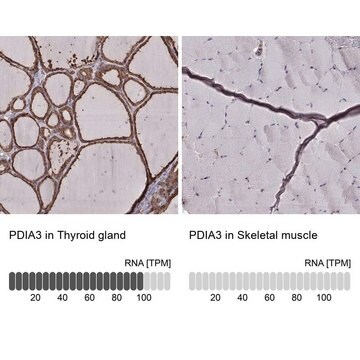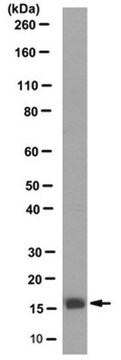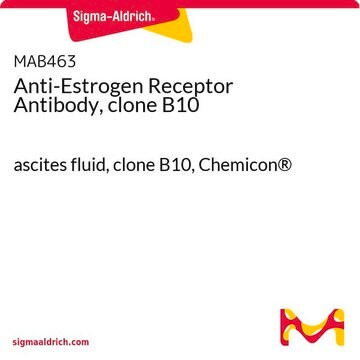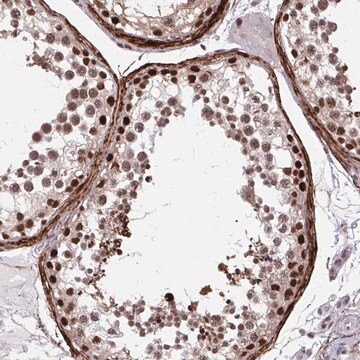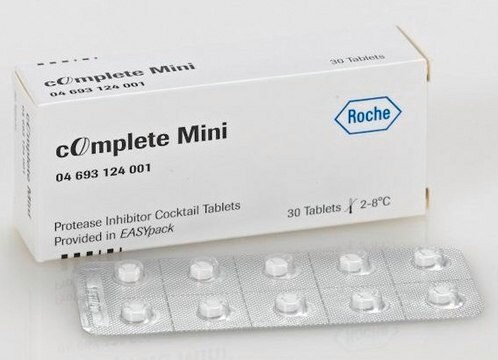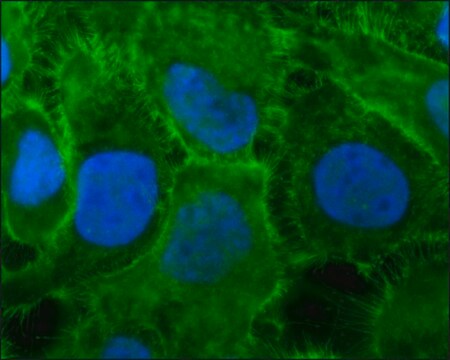MABC949
Anti-Glycoprotein 78 Antibody, clone 3F3A
clone 3F3A, from rat
Synonym(s):
E3 ubiquitin-protein ligase AMFR, AMF receptor, Autocrine motility factor receptor, gp78, RING finger protein 45
About This Item
IHC
WB
immunohistochemistry: suitable
western blot: suitable
Recommended Products
biological source
rat
Quality Level
antibody form
purified immunoglobulin
antibody product type
primary antibodies
clone
3F3A, monoclonal
species reactivity
mouse, human
technique(s)
immunocytochemistry: suitable
immunohistochemistry: suitable
western blot: suitable
isotype
IgMκ
NCBI accession no.
UniProt accession no.
shipped in
ambient
target post-translational modification
unmodified
Gene Information
human ... GPR78(27201)
General description
Specificity
Immunogen
Application
Affects Function: A representative lot stimulated the mobility of B16-F1 mouse melanoma cells on colloidal gold-coated surface (Nabi, I.R., et al. (1990). Cancer Res. 50(2):409-414).
Immunocytochemistry Analysis: A representative lot detected both surface and cytoplasmic gp78 immunoreactivity by fluorescent immunocytochemistry staining of intact or MeOH/3% paraformaldehyde-fixed and 0.5% Triton X-100-permeablized mouse A31 fibroblasts and A31M angiosarcoma cells (Niinaka, Y., et al. (1998). Cancer Res. 58(12):2667-2674).
Immunocytochemistry Analysis: Clone 3F3A ascites fluid immunolocalized gp78 on the surface of adherent B16-F1 mouse melanoma cells by fluorescent immunocytochemistry staining of 3% paraformaldehyde-fixed cells (Nabi, I.R., et al. (1990). Cancer Res. 50(2):409-414).
Immunohistochemistry Analysis: A representative lot detected an elevated gp78 immunoreactivity in frozen mammary gland sections from 235RLF transgenic mice than age-matched wild type mice (Joshi, B., et al. (2010). J. Biol. Chem. 285(12):8830-8839).
Western Blotting Analysis: A representative lot detected shRNA-mediated gp78 downregulation in HT-1180 human fibrosarcoma cells (Fu, M., et al. (2013). Mol. Biol. Cell. 24(8):1153-1162).
Western Blotting Analysis: A representative lot detected endogenous gp78 and gp78 transgene expression in mammary glands from wild-type and transgenic mice. Clone 3F3A detected a higher gp78 expression in metastatic MDA-435 cells than in non-metastatic MCF7 breast carcinoma cells (Joshi, B., et al. (2010). J. Biol. Chem. 285(12):8830-8839).
Western Blotting Analysis: A representative lot detected much higher gp78 expression in angiosarcoma (human HT-1180 and mouse A31M) than in fibroblast (human IMR90 and mouse A31) lines (Niinaka, Y., et al. (1998). Cancer Res. 58(12):2667-2674).
Western Blotting Analysis: A representative lot detected gp78 and a ~150 kDa band in B16-F1 mouse melanoma cell extract. Autocrine motility factor (AMF) competed against clone 3F3A for binding the gp78 target band. Cell extract sialidase treatment decreased the antibody′s immunoreactivity toward gp78 and abolished ~150 kDa band detection (Nabi, I.R., et al. (1990). Cancer Res. 50(2):409-414).
Apoptosis & Cancer
Quality
Target description
Physical form
Storage and Stability
Handling Recommendations: Upon receipt and prior to removing the cap, centrifuge the vial and gently mix the solution. Aliquot into microcentrifuge tubes and store at -20°C. Avoid repeated freeze/thaw cycles, which may damage IgG and affect product performance.
Other Notes
Disclaimer
Not finding the right product?
Try our Product Selector Tool.
Storage Class Code
12 - Non Combustible Liquids
WGK
WGK 2
Flash Point(F)
Not applicable
Flash Point(C)
Not applicable
Regulatory Listings
Regulatory Listings are mainly provided for chemical products. Only limited information can be provided here for non-chemical products. No entry means none of the components are listed. It is the user’s obligation to ensure the safe and legal use of the product.
JAN Code
MABC949:
Certificates of Analysis (COA)
Search for Certificates of Analysis (COA) by entering the products Lot/Batch Number. Lot and Batch Numbers can be found on a product’s label following the words ‘Lot’ or ‘Batch’.
Already Own This Product?
Find documentation for the products that you have recently purchased in the Document Library.
Our team of scientists has experience in all areas of research including Life Science, Material Science, Chemical Synthesis, Chromatography, Analytical and many others.
Contact Technical Service